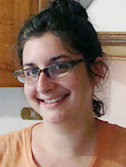 Last week, public health professionals, students, and government workers from across the country and abroad filled the George Washington University’s Marvin Center’s third floor to attend USAID’s 10th Annual Global Health Mini-University. The day-long program offered over 80 sessions and poster presentations on topics spanning technology, workforce issues, funding, and diseases.
Last week, public health professionals, students, and government workers from across the country and abroad filled the George Washington University’s Marvin Center’s third floor to attend USAID’s 10th Annual Global Health Mini-University. The day-long program offered over 80 sessions and poster presentations on topics spanning technology, workforce issues, funding, and diseases.
Innovation
In an afternoon session, Maurice Middleberg proposed a strategy for the Obama Administration’s Global Health Initiative (GHI) to consider for addressing the current worldwide health worker shortage. “The US should create HRH [human resources for health] strategies that are responsive to national HRH strategies, with country ownership,” said Middleberg. Furthermore, the strategy must also address health workers’ needs. In addition to training and deploying new health workers, the GHI strategy must include retention. “Nobody stops to ask the health worker why she or he is leaving. It turns out that health workers are real human beings with complex needs,” he said. Read more »
